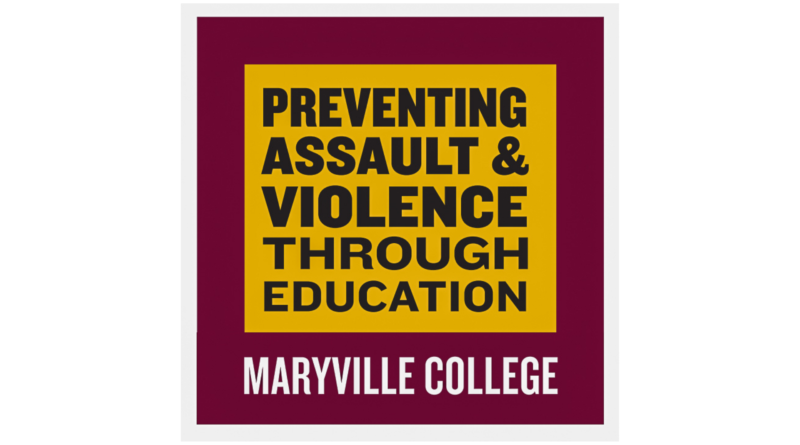Vulnerable, Awkward, (sometimes) Weird, & Amazing: Embracing healthy relationships
Hello beautiful people! This is the inaugural column of all things relationships from our Preventing Assault & Violence through Education (PAVE) program. The purpose of this column is to provide you with the opportunity to send in any and all questions you have about dating, sex, friendships, relationships, and consent.
Navigating the world of relationships (romantic, platonic, or otherwise) can be incredibly vulnerable, awkward, sometimes weird, and amazing. So, let’s share in these experiences together. This is a shame-free space, and the only bad questions are the ones left unasked.
I believe the more open we can have these difficult conversations, the better off we all are. Shame thrives in secrecy and silence so let’s get loud. There may be some giggles or heartache along the way, but hopefully we can all embrace the vulnerability and awkwardness and grow in this relationship together.
If you’d like to submit an anonymous question you can do so by stopping by Bartlett 102 (and grab some condoms while you are there) or you can send it to [email protected] or at https://forms.gle/WuW7vWBxF15sirTf9 All names and identifiable information will be changed or omitted. You can also follow @MC_peereducators on Instagram to see more.
Q: Dear Vulnerable,
I have recently started to notice that my friend is not hanging out with me as much after getting a boyfriend. Is this a bad sign? Should I be worried that their relationship is unhealthy? What should I say?
Signed,
One Worried Scot
A: One Worried Scot,
First, I will say thank you for reaching out. That is always a great place to start. Next, I will say that generally just seeing someone less after they start a relationship doesn’t necessarily mean they are in an unhealthy one. Relationships (of all sorts) do take time, effort, and energy to cultivate and nurture. If you add that on top of being a busy student, it can result in time being diverted from things like friends.
A great starting point would be to have an open (albeit, maybe difficult) conversation with your friend. I’d avoid approaching them by labeling their relationship (i.e. “you’re in a bad relationship”) and instead focus on what you have noticed and how you are feeling (“we haven’t hung out much recently and I miss you”).
If it is ok with your friend (“can I ask you about your relationship some?”), then try to step away from your judgement and ask open-ended questions about their relationship (“How do they make you feel?”). If we enter a conversation only looking for a specific response, then that is all we are likely to hear. With that said, I will leave you with some warning signs of unhealthy relationships and resources.
- If you hear your friend express or show any fear of their partner (i.e. “I have to answer this call from _____ or else”)
- If you hear your friend talk about the other person monitoring them (i.e. “I have to let _____ know where I am at all times”).
- If your friend is worried about their wellbeing or safety or their partner’s (i.e. “I want to break up but they say they will kill themselves if I do”)
- If your friend seems put down or in the dumps because of their partner (i.e. “_____ keeps saying how lucky I am they like me given how stupid I am”).
- If your friend is restricted on who they can see and when (i.e. “______ said I really shouldn’t hang out with you anymore so we can spend more time together”)
- If your friend is feeling like they are losing their grip on reality (i.e. “ I think he has been lying to me but now I can’t tell what’s true and not”)
- If you friend is feeling controlled and/or manipulated (i.e. “He keeps saying if I really liked him I would spend more time with him and less time studying”)
It’s important to know that even if someone is in an unhealthy or abusive relationship, they may not be in a place to acknowledge it as such. This can be for safety, sanity, or a number of other reasons. Labeling it as unhealthy or abusive may push them further away.
Instead, address the behaviors and how they and you feel (i.e. “I heard you say you felt scared to not answer that text, that makes me worried” or “it seems as though you aren’t getting to do the things you’ve enjoyed before and I know I’d be sad if that were happening to me”).
Lastly, let them know that you are there for them. It can be hard to support someone who is in an unhealthy or abusive relationship, so be sure to practice self-care (i.e. setting boundaries, getting support yourself, taking care of your body, mind, and spirit). I’d recommend you check out some of the following resources both on and off campus:
-PAVE Program (Bartlett 102) – [email protected]
General help navigating all of the resources available for students, staff, and faculty
-Counseling Center (Bartlett 308) – [email protected]
Free counseling services to all students
-Haven House (off campus) – 865-982-1087
24/7 shelter, crisis, and advocacy hotline for all members of the community
-Tennessee Coalition to end Domestic and Sexual Violence – https://www.tncoalition.org/
Educational resources and support to help end domestic and sexual violence
-National Domestic Violence Hotline – 1-800-799-7233
Call or chat (https://www.thehotline.org/) 24/7
Please keep this conversation going and if needed, reach out. Violence thrives in silence. Remember to take a deep breath, unclench your jaw, relax your shoulders, and dive in. We are here for you.
Sincerely,
Vulnerable, Awkward, (sometimes) Weird, & Amazing

